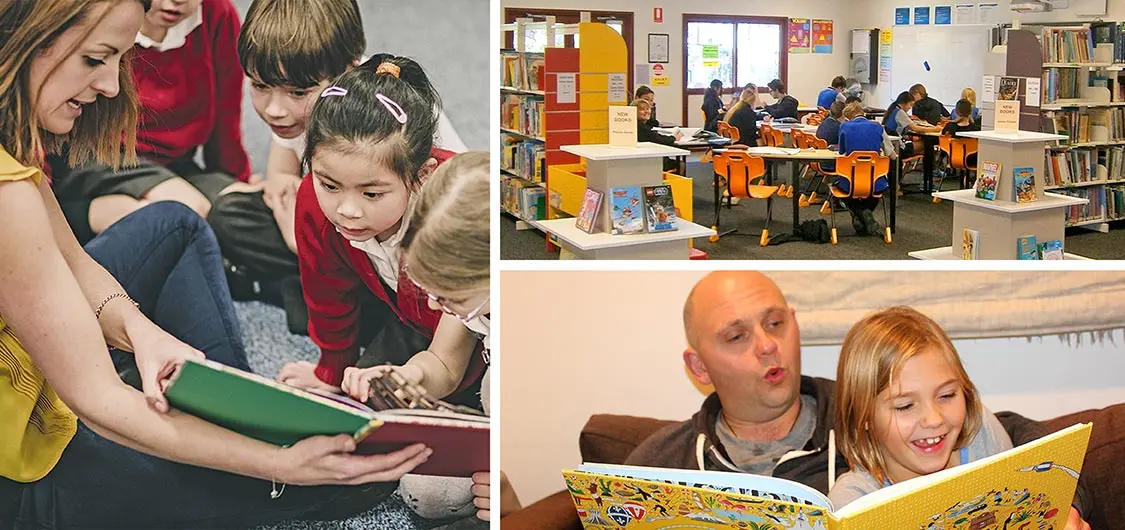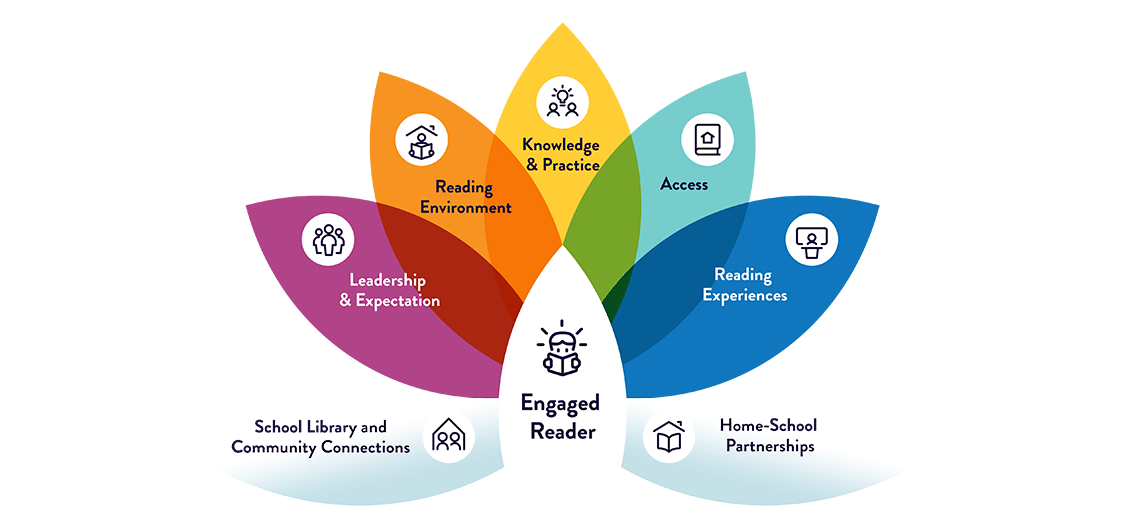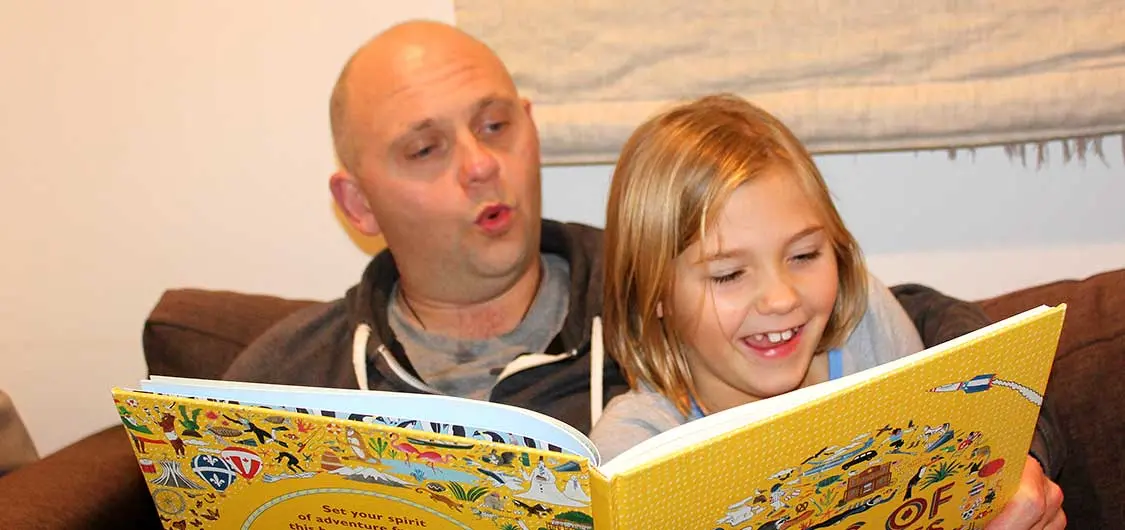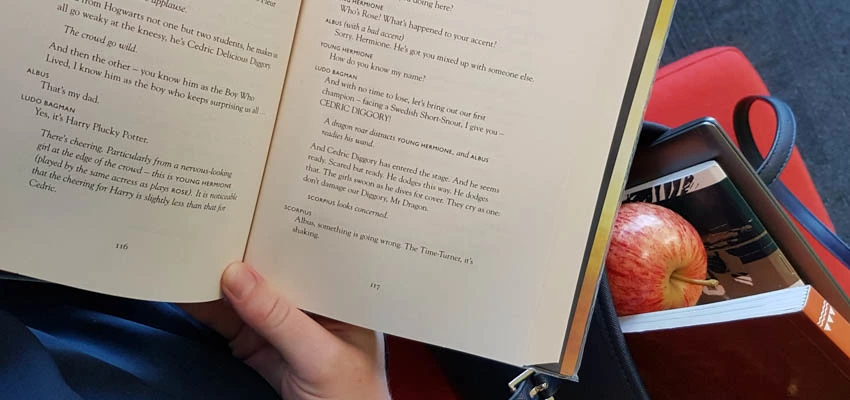
About Pūtoi Rito Communities of Readers
Pūtoi Rito Communities of Readers is a National Library initiative that works with partners in communities across Aotearoa New Zealand to design, develop and deliver support to grow reading for pleasure and well-being for children and young people.
What is Pūtoi Rito Communities of Readers?
Pūtoi Rito Communities of Readers (CoR) is a National Library initiative that aims to engage children and young people with reading for pleasure and wellbeing. Funded by the Te Puna Foundation and in collaboration with partners, the initiative works with communities to design, develop and deliver support for reading engagement.
Research, resources, stories and tools generated during each of the projects and learnings will also help shape future work, including that related to the National Library’s ‘Growing a Nation of Readers’ strategy.
CoR commenced in mid–2019 with four communities as part of phase 1:
South Dunedin
Canterbury — Kingslea school working with government and community support agencies in the region including Oranga Tamariki.
West Auckland — five primary schools in Kāhui Ako o Tiriwa (completed end of June 2021)
Huntly College (completed end of June 2021)
Phase 2 commenced in September 2021. It includes the continuation of the South Dunedin and Canterbury projects along with collaborations with two new projects. One in Dargaville and the other in the Waikato.
Transcript
Speakers
Barbara Cavanagh — Principal Huntly College, Melanie Mounsey — Student Huntly College, Bridget Schaumann — Facilitator Services to Schools, Elizabeth Jones, Director Literacy and Learning Services to Schools, Michaela Pinkerton — Deputy Principal Huntly College, Pip Laufiso — Education Advisor Priority Learners, Ministry of Education, Kirsten Glengarry — Relationship Manager, Ara Toi, Dunedin City Council, Katie-Rose Janmaat — student Huntly College, Jacinda Ardern — Prime Minister of New Zealand, Louise Waho — Kaiwhakahaere, Site Manager, Rangiora Oranga Tamariki, Jan Swarbrick — Case Manager, Work and Income, Pete Chaplin — Assistant Principal Kingslea School, Crissi Blair — Facilitator National Capability Services to Schools, Heather Howe — Associate Principal, West Harbour School, Tien Ngahere — Student Huntly College, some unidentified students.
Barbara Cavanagh: It's about valuing it and then being able to say to a student hey, you know this is really cool.
Melanie Mounsey: It's now Oh people at Huntly college read.
Bridget Schaumann: The feedback that we've had has just been overwhelmingly
enthusiastic.
Elizabeth Jones: Communities of readers is a collective impact project working with four very different communities across New Zealand to grow reading for pleasure and well-being for children and young people.
Each of the communities has its own focus but they all are based on the understanding that if we want to grow a nation of readers you need communities to do that.
And you can't leave it either to chance or to sole individuals.
Michaela Pinkerton: This is exciting and fantastic work. Because one of the things that story reading does is it gives people a place to escape, it gives people a place to become who they are, it gives them a place to build their brains, their minds,their hearts and that fortifies them against some of the stuff that we're experiencing in our lives. So it's really important work.
Pip Laufiso: If you have communities that already exist and then they have an opportunity to have a focus on reading.
Michaela Pinkerton: People all love story.
Kirsten Glengarry: We can all see the benefits of reading, the value of what's happening here and the difference we can make in young people's lives.
Barbara Cavanagh: They've got to have opinions, they've got to understand
how the world works.
Our community of readers is about building the readership of our young people here at Huntly College but alongside teachers,building teachers as readers so
that we can promote reading together.
Not only does reading allow us to understand other's stories but it allows us the
tools to tell our own.
Katie-Rose Janmaat: We believe here at Huntly college that Huntly college is
a school for leaders. And we also believe that leaders are readers, that's one of our biggest mottos here at Huntly college and I believe it wholeheartedly, I 100% back it.
Jacinda Ardern: I heard a bit of a theme of the influence of others in turning you to books, someone who encourages and who really stands up and
says why it is so important.
Tien Ngahere: At Huntly college we are very privileged to have a principal that understands and respects the importance of reading.
Barbara Cavanagh: What the community of readers has done for us has built a real support and partnership with the National Library and it's kind of raised
our level of expectation I suppose or excitement around reading.
Michaela Pinkerton: A very significant event was the National Library Speed Date a Genre event which literally brought people into a space where they were encouraged to take as many books as they wanted.
What are you interested in? What's happening for you? And people loaded up
with books and then went back to class and were reading avidly and teachers are saying, we just didn't expect to see that. So there was a huge
paradigm shift as a result.
Our community is primarily our young people. But they are connected to
whānau members, the brothers, the sisters, the primary school and the town as well. So for us community is really big.
But we're starting with the community that we have direct relationships with, in the most easy way and that's our young people.
Bridget Schaumann: The Community of Readers is a project bringing lots and
lots of picture books and junior fiction books to the children of South Dunedin.
The project is all about encouraging a love of reading.
Kirsten Glengarry: The focus of the Communities of Readers project is on the three to seven-year-old age group. We realise that, that's key for students moving from early childhood and to school.
How important it is to start early and be good readers from then.
Pip Laufiso: The co-design project gave us real community voice particularly around perceptions about reading, about literature about school, about education that it was really important for us to take heed of.
I think what's been really important is to strengthen relationships across the South Dunedin work.
We've looked for opportunities to really walk alongside organisations families, community groups to think about why these books are there and what do these books mean and some of the values that underpinned the project.
Pip Laufiso: One of the most important relationships that we have within
the working group and of course the partnership is one with mana whenua. This means that we've also got a really strong engagement I think.
Louise Waho: This is one of those projects that just made sense for us to get involved and support the bigger picture of how do we bring this to the front of tamariki who are going through some really vulnerable times and some difficult
challenges with their whānau to be able to actually love to read with their whānau.
Jan Swarbrick: The books that go first off the shelf are te reo. The children's reactions are just wonderful. At the end of the day to see their faces light up and they look and they say, can we, can we take this home? And I was like, yes you can.
Pete Chaplin: Having access to books and being able to read is just crucial for young people moving forward under their own steam. The discussions that we've had at staff meetings has sat really well with the programme that our teaching team
run in the classroom which is all about giving young people opportunities to read
stuff that spins their wheels.
The natural gravitation towards something that looks new and inviting is almost irresistible regardless of your level of reading ability.
They know the value of the resource and because it looked really presentable and engaging it was fantastic.
Crissi Blair: One of the things that we've been doing with the community of readers project is taking lots and lots of books into the schools. We had an event where we talked to the teachers about the joy of reading and about the
wide variety of things that were available to them.
Heather Howe: We've had books available for the children to take home,
we've got a shelf of books in the staff room for the staff to read. There was a focus on the teachers as readers as part of the Community of Readers for children to get inspired about readers they need to see teachers doing it.
Crissi Blair: For teachers to be able to see that they didn't have to be reading something that was just going to be good for the classroom but something that they would enjoy themselves has grown the enjoyment of reading again. Discovering things that they didn't really even know existed out in the world
of children's books.
Tien Ngahere: I'm quite honoured to have witnessed some students come a long way.
Pete Chaplin: The young people's response to the books was almost a wee bit
of disbelief that these beautiful engaging books were there for them to take.
Bridget Schaumann: We value books because books are taonga. That’s for a really good reason. They are transformational.
Barbara Cavanagh: You can't leave reading to chance in a school. So I think whatever opportunity there is, you pick it up. But as a leader,
you've got to lead it.
Any errors with the transcript, let us know and we will fix them digital-services@dia.govt.nz
Purpose of the project
Reading for pleasure has significant benefits such as improving reading, knowledge, empathy, creativity, wellbeing and social outcomes. It provides an important foundation for digital and critical literacies, crucial for participation in today’s complex information landscape.
However, not all children, young people and their communities in New Zealand have the same opportunities to develop a love of reading. There are inequities in access to books, libraries, expertise, support and reading role-models.
“All of the data suggest how powerfully reading transforms the lives of individuals — whatever their social circumstances. Regular reading not only boosts the likelihood of an individual’s academic and economic success — facts that are not especially surprising — but it also seems to awaken a person’s social and civic sense. Reading correlates with almost every measurement of positive personal and social behaviour surveyed.”
To Read or Not to Read: A Question of National Consequence, National Endowment for the Arts' report, US, 2007
Reading for pleasure — a door to success
About the name Pūtoi Rito
The name Pūtoi Rito comes from the harakeke or flax plant. The ‘Rito’ is the young shoot at the centre of the plant, representing the young reader or new reader, and ‘Pūtoi Rito’ represents the community coming together to support them.
The harakeke is sometimes used as a metaphor for generations in a family. ‘Te Awhi Rito’ are the strong, mature leaves that stand straight and tall to surround, protect and nurture the Rito. They are parents, connecting the Rito in the centre of the bush to their grandparents or Tupuna.
He Pā Rito is the whole harakeke, the interconnected system that is a healthy plant. Pūtoi Rito is part of the National Library’s He Pā Rito strategic direction to grow a nation of readers.
Current projects
South Dunedin community and partners
The South Dunedin community is working together to increase the number of young readers inspired to read for pleasure and well-being, the project is called ‘Read Share Grow’. The focus is children aged 3 to 12, through the period of transition from early learning environments to primary school and into early teens. The vision for the project is to strengthen the communities by reading together.
South Dunedin Communities of Readers project
Canterbury community
The Canterbury Communities of Readers project commenced in late 2020. It is providing books, programmes and reading environments for tamariki and rangatahi in care, or on the edge of care, and their caregivers in the Canterbury region. The partners are National Library and Kingslea School with a hub for the project at the Arahina ki Ōtautahi School in Richmond. The partners are working with government and community support agencies in the region including Oranga Tamariki.
The vision is to weave a whāriki of support to inspire a love of reading among tamariki and rangatahi in care, or on the edge of care.
Canterbury Communities of Readers project
Dargaville community
The Dargaville Pūtoi Rito Communities of Readers project began in early 2023 with three partner schools and the Dargaville Public Library.
Partners are working together to engage young people and their whānau with reading for pleasure and wellbeing. The project will provide books, little libraries in the community, reading experiences and professional development for educators.
Dargaville Pùtoi Rito Communities of Readers project
Previous projects
West Auckland community
Reading achievement is a priority challenge for the schools in Kāhui Ako o Tiriwa. During the West Auckland Community of Readers project, the five primary schools in the West Auckland Community of Readers worked together to encourage and enable teachers to nurture the joy of reading in their school.
West Auckland Communities of Readers project
Huntly College community
Huntly College is a co-educational decile 1 secondary school on the western banks of the Waikato River with a roll that is over 80% Māori. It has an innovative and broad curriculum and the Principal and school leaders are passionate advocates for reading for pleasure. National Library and Huntly Secondary College were the two partners in this project.
The vision was for Huntly College to become associated with reading. The school and the National Library worked together to support staff and student leaders to promote and inspire students to read for pleasure and wellbeing.
The project commenced in June 2020 and delivered professional development, books, visits, experiences and programmes for staff and students.
Huntly Communities of Readers project
Insights from Pūtoi Rito Phase 1
The Pūtoi Rito Phase 1 Summary and Insights Report includes insights from across the research findings, partner and stakeholder feedback, and internal review. They reinforce proven good practice and research from across the world and focus on conditions effective in Aotearoa New Zealand.
Phase 1 insights relate to the following 5 areas:
Conditions that encourage and support tamariki and rangatahi to read for pleasure in any setting
Developing a culture of reading in school communities
Increasing reading for pleasure in a local community
Establishing and managing Pūtoi Rito projects
Continuing to develop the evidence and research base
The insights are informing the further development of this work in the the next phase of Pūtoi Rito.
Important success factors of the initiatives
There are many factors that can affect reading engagement. However, the more the community surrounding children and young people understand the value and potential impact of reading for pleasure and their own influence in creating young readers, the more effective they are in encouraging and supporting reading.
Other factors that support and inspire reading for pleasure
Leadership and shared purpose is required in a local context to bring schools or communities together to create an environment where reading for pleasure is supported, celebrated, prioritised and encouraged.
Providing access to high quality books, and expert selection and curation is highly valued by children, young people, whānau, educators and everyone connected to the projects.
It’s important to ensure they have choice in what they read, and the freedom and support to pursue their own interests.
Generous and joyful initiatives create good associations with reading; without a ‘deficit’ context, or blame, guilt or shame and build on existing strengths in a community.
Reading is both an individual pursuit and a social activity that can be stimulated, influenced, inspired and actively enabled by others. Books alone are not enough. To build knowledge and understanding they need to be accompanied by professional development for educators, and/or information sessions for whānau,caregivers,social workers or the community with messages about reading for pleasure and how to support and engage children and young people with reading.
Read the Pūtoi Rito Phase 1 Summary and Insights Report
Research
Although there is a growing body of international research available on reading for pleasure there are gaps in New Zealand research. The School of Education Auckland University of Technology (AUT), Point and Associates and NZCER were commissioned to undertake research as part of the initiative. The reports include one for each of the 4 projects, a reading for pleasure literature review and a summary of insights from the school-based projects, and a report on teachers as readers.
Tools and resources for creating communities of readers
As part of the Communities of Readers project we have been developing videos, tools and resources to support our ongoing work and to share with others interested in creating reading communities. During phase one we developed a:
School reading culture review tool — Read about creating a school reading culture and download the ‘School reading culture review tool’.
Reading community framework — Watch the video and download the ‘Reading community framework’.
Teachers creating readers framework — Read about and download the ‘Teachers creating readers framework’.
Related content

Creating a reading community
Find out how school staff, school and public libraries, and families and whānau can work together as a community to support and motivate students to read for pleasure.
A school reading community
Effective school reading communities inspire and support students to read for pleasure. Use the School Reading Community Framework and watch a video to get strategies for creating a reading community.
Reading at home
Find out how you can support and encourage your children and teenagers to read for pleasure. This is one of the most powerful ways of improving their literacy, learning, and wellbeing.